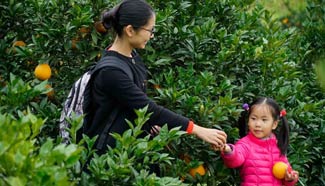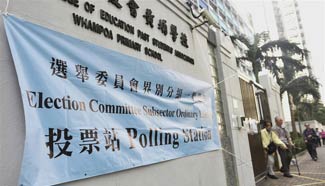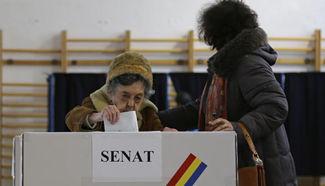BEIJING, Dec. 11 (Xinhua) -- Sunday marked the 15th anniversary of China's accession to the World Trade Organization (WTO), also the expiration date for the surrogate country approach used by member countries to calculate anti-dumping measures against Chinese exports.
In accordance with Article 15 of the accession protocol signed when China joined the WTO in 2001, the surrogate country approach expires on December 11, 2016.
The day could be a time for celebrations considering China's progress in opening-up its market and advancing market-oriented reforms over the past 15 years, but the outright refusal by some member nations to honor their commitments dampened the sentiment.
On Friday the Japanese government announced that it will not recognize China as a market economy and plans no changes to its trade policies.
By doing so, Japan will continue to use a third country's prices to determine whether China is selling goods below market value, making it relatively easy for Japan to level anti-dumping claims against China.
Earlier, the U.S. Commerce Secretary Penny Pritzker said the time was "not ripe" for the U.S. to grant China market economy status, suggesting old anti-dumping practices would be kept.
In response to the comments, China's Ministry of Commerce spokesman Shen Danyang said China will take measures to defend its legal rights if members continue the approach after the expiration date.
When China joined the WTO, members use costs of production in a third country to calculate the value of products from countries on their "non-market economy" list, which includes China.
Besides the fact that the concept of market economy status only exists in some countries's domestic trade laws, another question is whether the standard they used to judge the status is fair and impartial, not to mention the use of the list as legal grounds for ignoring international rules.
The WTO clause states the timetable for ending the surrogate country approach, which should have nothing to do with whether China has been granted market economy status or not, pointed out Tu Xinquan, expert at the China Institute for WTO Studies at the Beijing-based University of International Business and Economics.
WTO protocols are a consensus reached between China and other WTO members during the accession negotiation, and regulations in domestic laws should comply with international trade rules if they are in conflict, according to Bai Ming, researcher with an institution affiliated with the Ministry of Commerce.
To cut the link with the "non-market economy" list, the European Commission, the bloc's executive arm, last month presented a new methodology for its anti-dumping and anti-subsidy calculations, replacing the concept with those of "market distortion."
Although the surrogate country approach has been dropped, the EU left open the option to use "international" prices and cost reference in further anti-dumping cases if "market distortion" was found, which analysts said is simply another way of extending the previous practices and is groundless within the WTO framework.
As major members of the WTO, the refusal by the United States, Japan and the EU will undermine confidence in the organization at a time when world trade growth has been shrinking.
Regarding the possible implications, China's Ministry of Commerce has already warned of the possible impact on trade ties. At a press conference Friday, Shen called for the countries to fulfill their WTO obligations in due time to avoid affecting bilateral trade ties.
For its next step, China is very likely to take a legal action at the WTO against members who are not observing the rules.
But the WTO ruling will take time, and bilateral trade ties could worsen during the pending period, and even a trade war could be likely, according to Tu.
Official data from the first 11 months showed that the EU is China's biggest trading partner, with a trading volume of 3.26 trillion yuan (472.4 billion U.S. dollars), followed by the U.S. with a trade volume of 3.08 trillion yuan.
Related:
Interview: China's achievements lauded as it marks 15 years of WTO membership
GENEVA, Dec. 11 (Xinhua) -- As China marks on Sunday 15 years since becoming a World Trade Organization (WTO) member, a WTO official applauded not only the progress made since 2001 but also Beijing's active role within the global trade body and increasing leadership and vision on multilateral platforms. Full story
China Voice: China's WTO entry benefits world
BEIJING, Dec. 10 (Xinhua) -- Since entering the World Trade Organization (WTO) 15 years ago, China has witnessed robust economic growth, and an increasingly prosperous China has created significant opportunities for countries around the world. Full story
China urges WTO members to abandon surrogate country approach
BEIJING, Dec. 9 (Xinhua) -- China on Friday urged other members of the World Trade Organization (WTO) to abandon the surrogate country approach when calculating anti-dumping measures against Chinese exports. Full story











